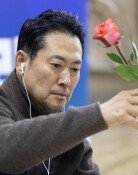[Editorial] United Efforts Needed for Economic Revival
[Editorial] United Efforts Needed for Economic Revival
Posted July. 03, 2008 06:40,
The government yesterday lowered its growth forecast when it announced policies to stabilize the economy. Its growth projection has fallen from six percent to 4.7 percent but its forecast for consumer inflation has risen from 3.3 percent to 4.5 percent. The government also raised its estimate for the current account deficit from seven billion dollars to 10 billion dollars. Worse, the economic growth rate will probably fall further if international oil prices increase more sharply than expected.
Net foreign debt was a mere 14.9 billion dollars in March, but combined foreign debt has kept growing to reach 412.5 billion dollars. That means Korea is expected to become a net debtor soon for the first time since 2000. If this happens, the countrys sovereign credit rating will see a downgrade and economic difficulties will increase.
Corporate investment is unlikely to rise. Even with slight increases in the second half, growth of corporate investment in facilities and equipment is expected to stay around four percent. Insufficient investment makes creating jobs or boosting the economy difficult. In that case, economic recovery is hard to expect. An investment growth rate lower than that of the economy means a weaker economy.
Amid difficulties at home and abroad, Korea should strengthen its fundamentals. The administration, lawmakers, management and unions should perform their own roles to encourage corporate investment, a driving force of economic growth and job creation. For this to happen, the government should revise or abolish regulations that prevent corporations from investing proactively. If lawmakers neglect their duties, they cannot contribute to boosting investment or the economy. Lawmakers of the main opposition United Democratic Party still support a variety of demonstrations and are boycotting the National Assembly even when smaller stores and corporations are failing due to sluggish sales resulting from two months of protests.
No capital, domestic or foreign, will be invested in Korea if unions keep waging demonstrations. The largest beneficiary of U.S. beef imports will be Korean carmakers since beef imports will encourage U.S. congressmen to ratify the free trade agreement with Korea. The union of Hyundai Motor participated in a political strike led by the Korean Confederation of Trade Unions, a decision tantamount to a self-injury and damage to the people. Unless unions stop waging demonstrations for dubious reasons, the virtuous circle of peaceful relations between management and labor, stabilized production, investment and economic recovery is unachievable.
President Lee Myung-bak said, Economic conditions now can be called the third oil shock. So the government should come up with effective measures such as policies to improve consumption structure instead of sitting idle. It should also make its own efforts while letting the administration, lawmakers, corporations and the people know what each of them should do to fulfill major economic goals in the second half, such as stabilizing prices and the peoples livelihood, creating jobs and expanding growth potential. Also, the people must express strong opposition to the strike by the union confederation and opposition parties.




![[김순덕의 도발] ‘李부터 연임’ 개헌, 이 대통령은 가능성을 말했다](https://dimg.donga.com/c/138/175/90/1/wps/NEWS/IMAGE/2026/01/16/133172656.1.jpg)


